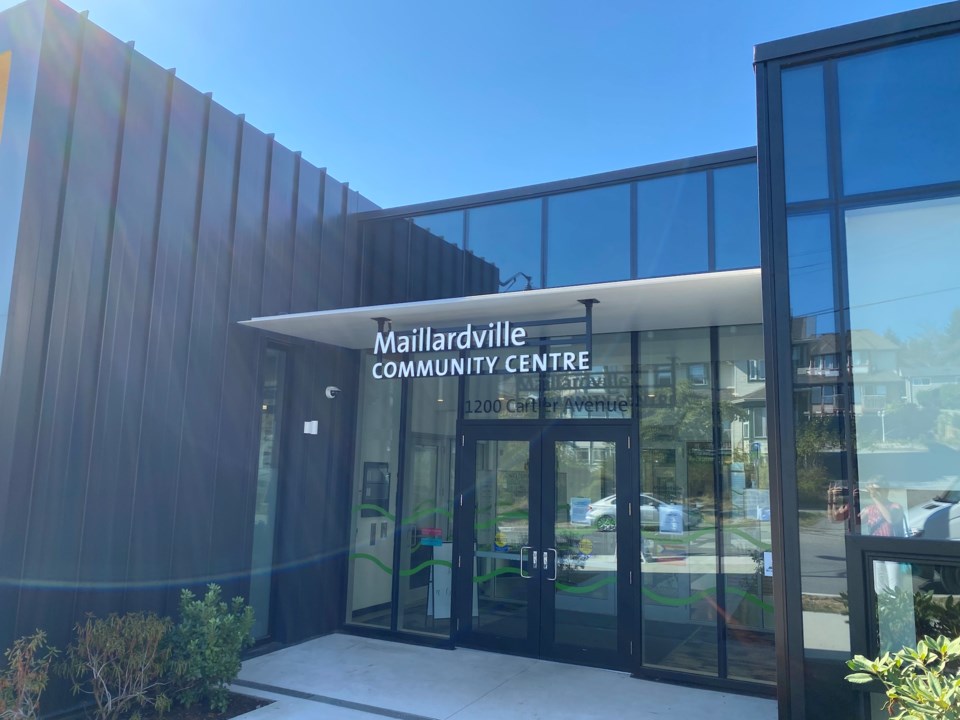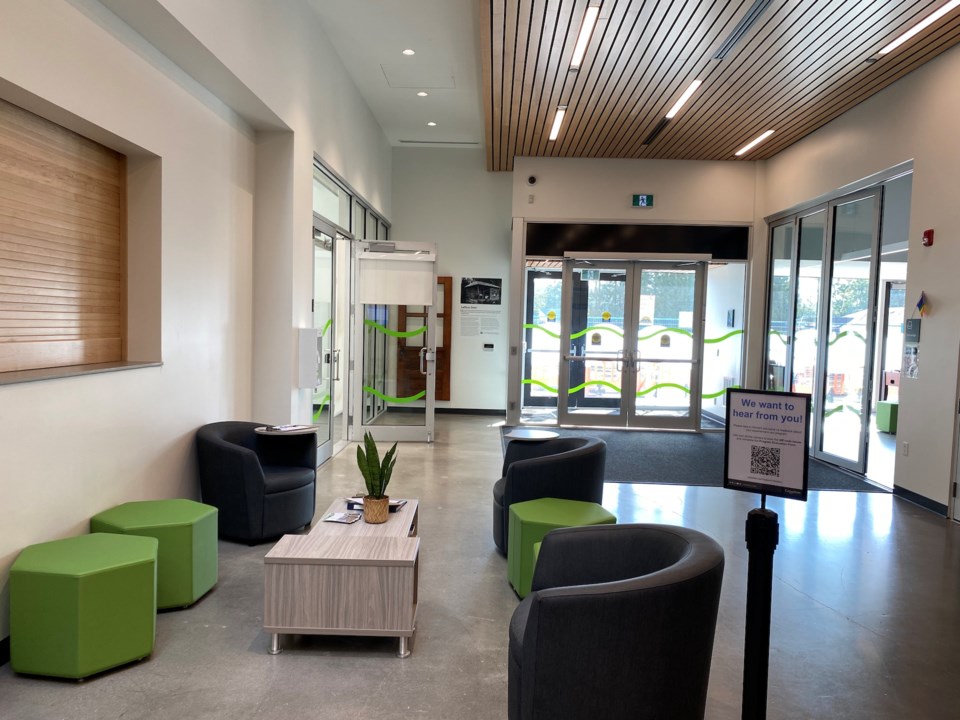It's another hot day and temperatures have already reached 25°C in Maillardville, a small historically francophone neighbourhood in southwest Coquitlam.
On the partially shaded tennis court at Mackin Park, someone is banging tennis balls against a wall.
But in the parking lot at Real Canadian Superstore on Lougheed Highway, the temperature feels scorching and a dozen people are seeking shade on a patio outside the Starbucks drive-thru.
Today (Aug. 15) is not a heat emergency because, while daytime highs are in the low 30s, nightly temperatures are holding steady instead of rising.
Still, a heat warning is in effect and Metro Vancouver residents are encouraged to be prepared and look after their vulnerable neighbours and loved ones — especially those living in one bedroom apartments with no air conditioning and limited flow through air.
Small condos trap heat
People who are suffering from the heat can also to visit cooling centres, typically community centres, during the day.
When the Tri-City News visited Maillardville Community Centre (1200 Cartier Ave.), one of six facilities operating as cooling centres in Coquitlam, the temperature was cool, a water-bottle filling station was available and the place was alive with yoga and kids' camps.
It's often at night, when trapped heat causes higher temperatures to rise, that seniors and others with underlying medical conditions feel the heat most intensely.
However, community centres aren't typically open late at night and even if they were, getting to them would be a challenge, says Ken Kuhn, seniors advocate with the Tri-City Seniors' Action Society (TCSAS).
"Today there will be seniors who are in their one bedroom apartment, who don't get out, who don’t have flow through air, and it will be anywhere between 30°C and 33°C when they try to go to bed at night," said Kuhn.
He's calling for cities, including Coquitlam, Port Coquitlam and Port Moody, to open their cooling centres for 24 hours.

The most recent TCSAS newsletter urges seniors to contact local officials to have cooling centre hours extended, stating "vulnerable older people deserve help," too.
Kuhn, whose letter goes out to several thousand people, said seniors need to speak up about their issues.
Noting that there are more than 100,000 seniors between the three cities, he says they have clout if they take action.
"It's time to be bad ass," said Kuhn.
"If you were rebellious when you were a teenager, now is the time to put it into motion."
A retired School District 43 teacher, Kuhn recognizes that seniors are living in various circumstances — some in larger homes and some with air conditioning.
Some are mobile and can drive somewhere to cool down.
But many seniors, and others with health conditions, may be stuck at home, isolated and at risk if they can't get to a place to cool down — especially late at night.
"They need options," said Kuhn, noting that it wouldn't be too difficult to get a business to sponsor the additional staff needed to open cooling centres all night.
Cooling centres with water, AC open
Kuhn said he could easily find volunteers with first aid training to help out to assist cities in providing longer hours at air conditioned community and seniors' centres.
Getting the word out to seniors is also important, he added, now that they no longer have access to a print edition of a community newspaper, and most aren't necessarily connected to the internet.
Others might need help to get to a cooling centre and so funding would be needed to provide cab fare or other transportation, he said.
"It would be just for a few weeks," he noted.
Coquitlam has been connecting with seniors, including those who visit Coquitlam city facilities, such as senior centres.
Cooling centres with water and AC have opened up in several Coquitlam facilities, as well as in Port Coquitlam and Port Moody.
Bylaw officers are also distributing water and connecting with un-housed people.
Not hot enough for 24-hour opening
But while these services are in place, it's not hot enough to open cooling centres for 24-hours.
According to Coquitlam's risk and emergency manager, Nicole Kimmitt, under the B.C. Heat Alert and Response System, an extreme heat emergency hasn't been declared.
If it was, cities would implement additional emergency measures, including possibly opening cooling centres longer.
"Once a heat warning has been declared, and if temperatures are projected to reach the extreme heat emergency threshold, response planning specific to the emergency at hand is initiated," Kimmitt explained via email.
While she didn't rule out opening cooling centres for 24-hours, she said responses will depend on the circumstance and community needs.
Kimmitt also noted that ensuring seniors have access to cooled spaces remains a "top priority."
Kuhn agrees that seniors should be a priority given their numbers and specific needs.
"We need to speak out for ourselves now [because] 20 per cent [of the population] are seniors and that per cent is growing all the time. Not just seniors, but people who are vulnerable."



